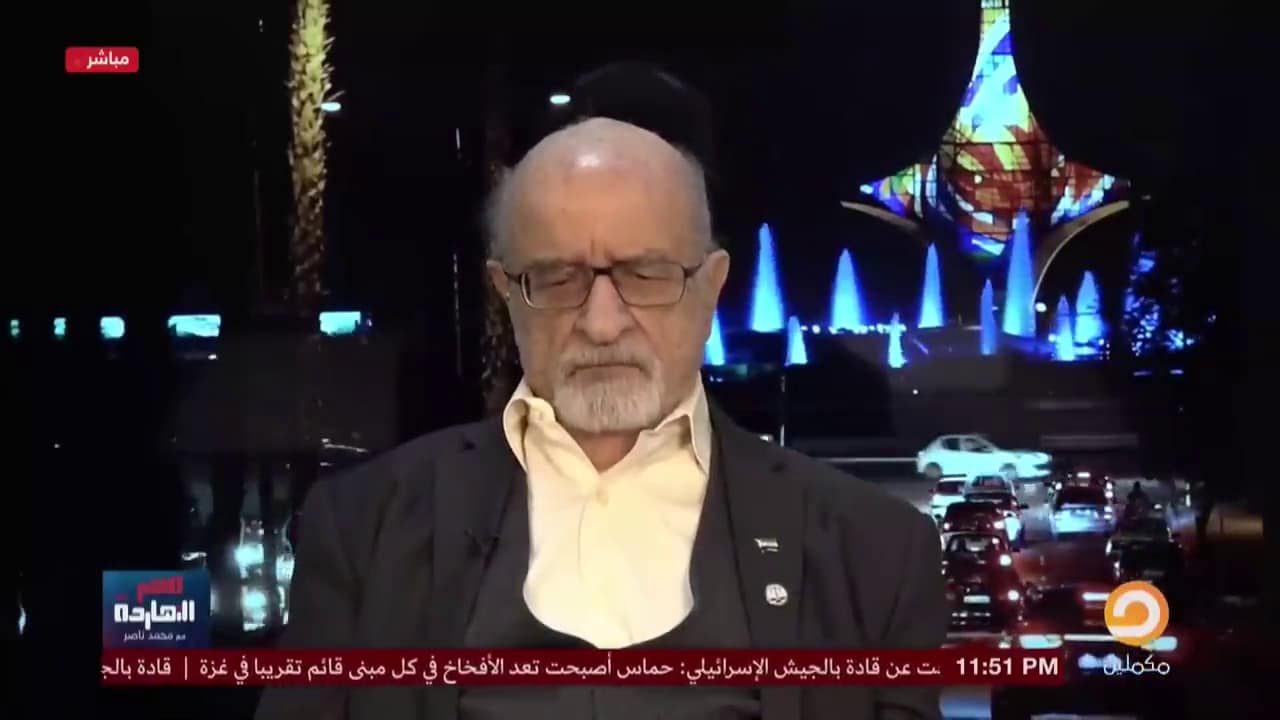
In a TV interview, Massoud Barazani, President of Kurdistan, said that the time was ripe for a reorganization of the region and that Iraq should turn towards a confederation. "The important thing is for the decision-making to be in the hands of the Kurds, and not in Baghdad," he said..
Following are excerpts from the interview, which aired on April 13, 2014:
Interviewer: Has the Kurds' dream of an independent Kurdish state become any closer to realization today?
Massoud Barazani: This is the natural right of the Kurds, as it is of any nation. Let me reiterate what I have said in the past: This goal will not be achieved through violence, but through peaceful, democratic means, when the time is right. In the initial stages, we need to think about achieving some of the Kurdish goals, and attaining their rights, according to the circumstances of each stage, in a peaceful democratic way.
The independence of Kurdistan is a natural right, and I believe that it will be attained. When – I don't know.
[…]
Interviewer: Is the region on the threshold of a new Sykes-Picot agreement?
Massoud Barazani: I believe that it is, but we could phrase it differently: correcting and rectifying the mistakes of the Sykes-Picot agreement. The Sykes-Picot agreement divided the region against the will of its people, in an abnormal and illegal manner. I believe that the time is now ripe for a reorganization of the region.
Interviewer: A new Sykes-Picot agreement would further divide what has already been divided.
Massoud Barazani: I would call it "rectifying what has been divided."
Interviewer: Won't we be going back to our ethnic, sectarian, and religious affiliations?
Massoud Barazani: The entities were created as a result of the Sykes-Picot agreement, when various ethnicities and entities were forcibly fused together, but have proven to have been a failure. The region must be rebuilt. It should be divided on the basis of voluntary unity, rather than the imposing of a certain formula.
[…]
I believe that the time has come for us in Iraq to turn towards a confederation.
Interviewer: What is the difference between that and partitioning the country?
Massoud Barazani: Moving from federation to confederation would be a significant development, but Iraq would remain a unified country.
Interviewer: You would like to have an independent Kurdish foreign policy, an independent defense policy, and an independent financial policy, right?
Massoud Barazani: Let me be honest. After all the sacrifices made by the Kurdish people, it cannot agree to surrender its decision-making to any other regime. This is especially true for us here, in Iraq. We will be partners in a confederation or an advanced form of federation, but the important thing is for the decision-making to be in the hands of the Kurds, and not in Baghdad. I say this loud and clear.
Interviewer: Mr. President, is the federation in its current form in Iraq acceptable or not?
Massoud Barazani: If it wasn't acceptable, we wouldn't have voted for it.
Interviewer: No, I mean now.
Massoud Barazani: Federalism no longer exists here. [The Iraqi government] has monopolized all the authorities.
[…]
Interviewer: Some people say that Al-Maliki rules today due to the joint will of the Iranians and the Americans, along with silence on the part of the Kurds.
Massoud Barazani: That is true. That is indeed what happened, and that is what led him to his second term in office. It's true.
Interviewer: You strongly regret this.
Massoud Barazani: I cannot say that I regret this, and I do not judge the decision taken back then based on today's circumstances. Indeed, I expected Mr. Al-Maliki to defend the Kurdish cause, rather than treat the Kurds and Kurdistan in such a bizarre way.
Interviewer: Whose interests does this conduct of his serve?
Massoud Barazani: This is a real question, because he used to live among us. To this day, I respect him and consider him a friend. Personally, I have no problem with him. But I thought he was the most suitable person to defend the Kurdish issue, and to strengthen Kurdish-Arab ties. I expected him to be grateful to the Kurds. But I'm sad to say that the opposite has happened.
Interviewer: Is Al-Maliki's conduct the result of an Iranian-American alliance?
Massoud Barazani: There was undoubtedly Iranian and American support for Al-Maliki, and this is a peculiar mystery that I haven't figured out yet.
Interviewer: Was or still is?
Massoud Barazani: There still is, but perhaps not as strongly as in the past.
Interviewer: What kind of compromise is this, Mr. President? How are we to understand an Iranian-American compromise on Al-Maliki's remaining power?
Massoud Barazani: The truth is that I don't have an answer to this question.
Interviewer: Not even you?
Massoud Barazani: That's right. What led Iran and the U.S. to agree on this issue, while they disagreed over every other issue? It's strange.
Interviewer: You too are allies of the Americans? Does this spell the abandonment of the Kurds?
Massoud Barazani: The Americans have their own interests and policies. They do not make their decision based on the Kurdish or Arab will. Perhaps they think that it is in their best interest to balance their ties and alliances with everybody. That is their way.
[…]













